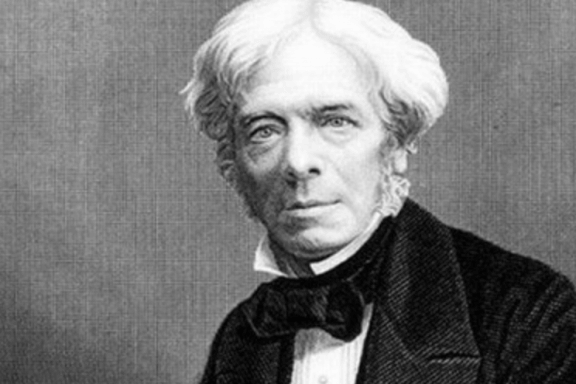Michael Faraday was one of those geniuses who forever changed the history of physics and chemistry, without his contributions electric motors would not exist. The interesting thing is that he had very little academic preparation, graduated on his own, thanks to a self-taught job that ended only with his death.
Important discoveries in the field of electrochemistry and electrochemistry have been attributed to it; he also discovered benzene, a hydrocarbon found in most of the plastic elements we use today.
“Nothing is too wonderful to be true if you obey the laws of nature” – Michael Faraday–
His life and work are fascinating. As a poor child who worked to help his family, he was rewarded for his contribution to science by Queen Victoria of England; however, what made him a great scientist was his perseverance and passion for knowledge.
Michael Faraday was born on 22 September 1791 in what is now central London. He was the third of four children, born into a modest family. His father was a blacksmith and his mother was a selfless housewife of rural origin.
It was his mother who decided to take him out of school. Apparently, Michael Faraday couldn’t pronounce the letter “r” well, and the teacher ridiculed and punished him. His mother couldn’t stand this situation and thought it was better for his son. To work with the family. Michael Faraday’s story took a turn when he began working at the age of 14 as an apprentice to George Riebau, a booksbook book book book book in London.
This work aroused his intellectual curiosity. He began to read voronously the books he sold, spent seven years in this work, and in that period crossed with the work of Isaac Watts, who aroused in him a great enthusiasm; he also had contact with early scientific books, which provoked his interest in electrical phenomena.
At the age of 19, Faraday joined The City Philosophical Society, a group of young science enthusiasts. The host was John Tatum, who, at the group’s evening meetings, explained the principles of electricity, chemistry and physics. Faraday met Humphry Davy, who was a member of the Royal Institution and often gave him tickets to attend his lectures.
The notes Faraday took during those years resulted in a 300-page volume, which he then sent to Davy, who suffered an accident and lost his sight, so he decided to hire Faraday as secretary, then joined him as a chemistry assistant at the Royal. Institution During these years, Michael Faraday was humiliated by Davy’s wife, but his interest in learning from his mentor was greater.
In 1815, Michael Faraday began teaching everything he had learned during those years. He also published his first scientific work on chemistry, wrote several articles and lectured. By 1820 he already had a good reputation in academia.
The director of a scientific journal, called Anais da Filosofia, asked him to write about the work of several scientists who were experimenting with electromagnetism. To carry out this work, Michael Faraday reproduced several of the experiments and that’s when he did his best. important discoveries; in particular, it paved the way for the mechanical use of electrical energy, which laid the foundation for the creation of electric motors.
In 1825 Faraday, who had married in 1821, became director of the Royal Society, replacing his mentor Elmer Humphry Davy, that same year he discovered benzene and reached the pinnacle of his scientific career, later making new discoveries about metal properties and magnetism, as well as formulating the famous “Laws of Faraday”.
Since becoming director of the Royal Society, he began giving free lectures to young people in training, and all beneficiaries should also do the same for those who did not have access to education. In 1832 he obtained a master’s degree from oxford University. He suffered a nervous breakdown in 1839, but managed to recover and in 1858 retired and went to live in a house ceded by the crown, dying in 1867.
Out of curiosity, a crater of the Moon was named for its great contributions.

